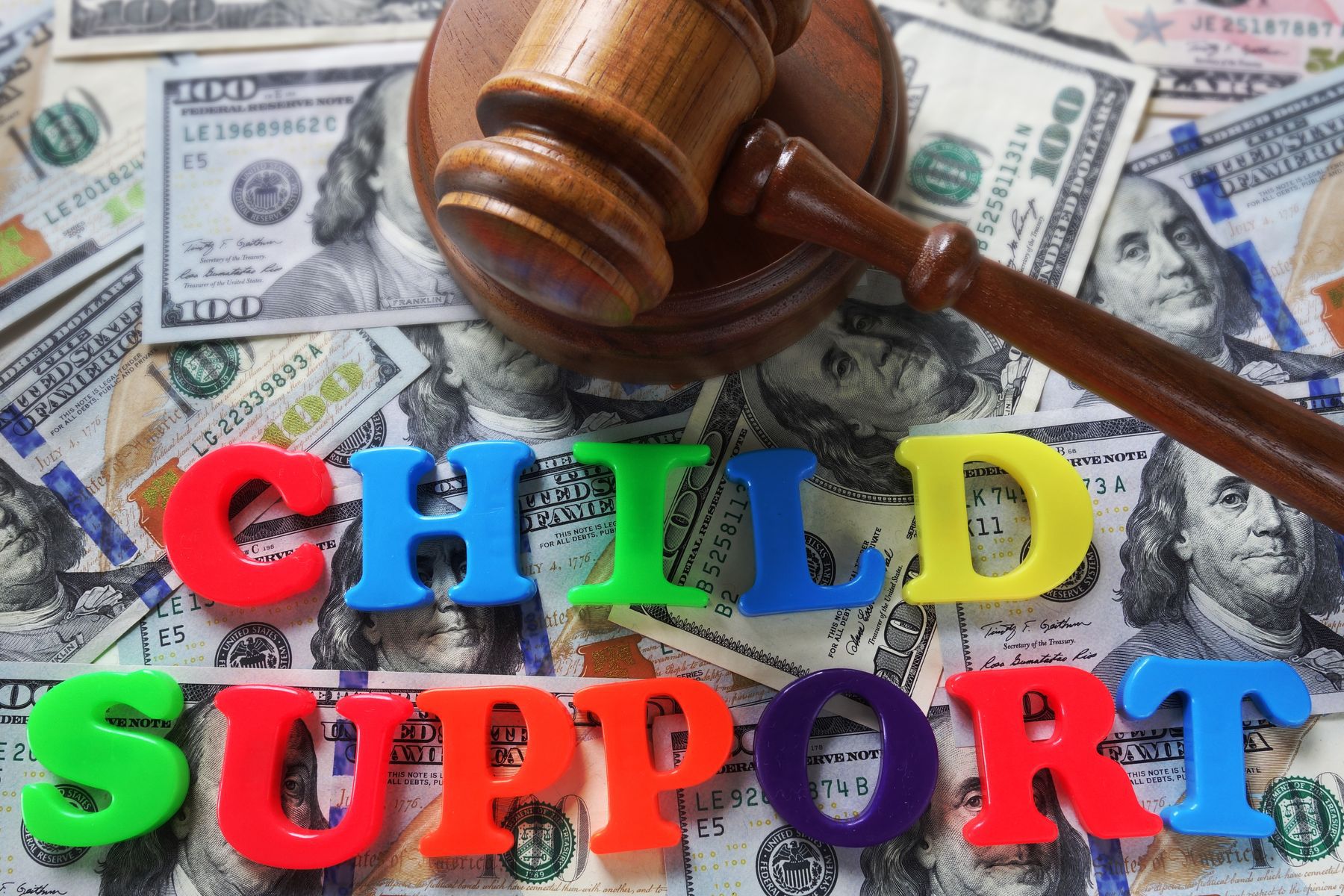Last Updated on January 15, 2025
In joint custody, both parents have the obligation to pay child support. Joint custody means that both parents share physical and legal custody of the child.

Credit: newdirectionfamilylaw.com
Factors Affecting Child Support Payments
In joint custody, both parents are responsible for child support payments based on various factors like income, custody arrangements, and expenses. Determining the amount is essential to ensure the child’s well-being and covering expenses for their care and upbringing.
Income Disparity Between The Parents
One of the key factors that influence child support payments in joint custody cases is the income disparity between the parents. The parent with the higher income generally bears a larger share of the financial responsibility for their children. This is to ensure that the children have access to the same standard of living they would have had if their parents were still together. Courts take into account the income levels of both parents to determine an appropriate child support amount.
Number Of Children Involved
The number of children involved in a joint custody arrangement is another influential factor. Generally, the more children there are, the higher the child support payments will be. This is because the care, support, and expenses associated with raising multiple children are typically greater. Courts consider the specific needs of each child and aim to ensure their financial well-being.
Custodial Time And Responsibilities
The amount of custodial time and responsibilities each parent has also plays a role in determining child support payments. If one parent has the children for a significantly greater amount of time, they may be entitled to more financial support from the other parent. This is because the parent with less custodial time generally incurs fewer expenses directly related to the children’s day-to-day care and needs.
Additional Financial Resources
In some cases, one or both parents may have additional financial resources that can impact child support payments. This can include income from investments, rental properties, or other sources. The court will consider these additional resources when determining the appropriate amount of child support.
Children’s Needs And Expenses
The needs and expenses of the children themselves are paramount. The court considers factors such as education, healthcare, extracurricular activities, and special needs when determining child support payments. It is crucial to ensure that the children’s financial requirements are adequately covered, taking into account their unique circumstances and ensuring their best interests are met.
Calculation And Allocation Of Child Support
Joint custody arrangements can lead to confusion over child support. Understanding the calculation and allocation of child support can help determine who is responsible for paying it.
State-specific Child Support Guidelines
Child support is a vital aspect of joint custody arrangements, as it ensures that both parents contribute to the financial well-being of their children. However, the calculation and allocation of child support can vary from state to state. Each state has its own set of guidelines and formulas to determine the appropriate amount of child support that should be paid. These guidelines take into account various factors such as the income of each parent, the number of children involved, and the overall financial situation of the parents.
Determination Of Income For Each Parent
When it comes to child support calculation, the income of each parent plays a significant role. The court needs to determine the income of both parents accurately to ensure a fair and equitable child support arrangement. Income can include earnings from employment, self-employment, investments, rental properties, and other sources. It is essential to provide accurate documentation of income, including pay stubs, tax returns, and financial statements, to establish an accurate income figure for each parent.
Factors Considered When Calculating Child Support
When calculating child support, various factors are taken into consideration. These factors may include:
- The income of both parents
- The number of children involved
- The childcare costs, including daycare, health insurance, and medical expenses
- The educational expenses of the children
- The specific needs of the children, such as special medical or educational requirements
- The standard of living the children would have enjoyed if the parents were living together
Percentage Of Income Allocated For Child Support
In many states, child support is calculated based on a percentage of the noncustodial parent’s income. The percentage may vary depending on the number of children involved. For example, the guidelines might specify that 20% of the noncustodial parent’s income should be allocated for one child, 25% for two children, and so on. It is essential to consult the specific child support guidelines in your state to determine the exact percentage allocated for child support based on the number of children involved.
Adjustments For Shared Custody Arrangements
In cases where parents share custody more equally, adjustments may be made to the child support amount. This recognizes the shared responsibility of both parents in providing for their children’s needs. If a shared custody arrangement exists, the court may consider the number of overnights each parent has with the children and apply a different calculation formula to determine the adjusted child support amount. It is important to note that each state has its own rules and guidelines regarding adjustments for shared custody, so it is crucial to consult the specific laws in your jurisdiction.
Exceptions And Special Circumstances
Joint custody arrangements can sometimes raise questions about who is responsible for paying child support. In these exceptions and special circumstances, the courts typically determine each parent’s financial contribution based on individual income and the needs of the child.
When it comes to joint custody arrangements, child support obligations can become a bit more complex. While both parents are typically responsible for financially supporting their children, there are exceptions and special circumstances that can affect child support in joint custody cases. Understanding these exceptions is crucial to navigating the child support system effectively.
Deviation From Standard Child Support Guidelines
In general, child support is determined by the guidelines set forth by each state. These guidelines take into account various factors such as the parents’ income, the number of children involved, and the custody arrangement. However, there may be situations where deviation from these standard guidelines is warranted. This could occur if one parent has a significantly higher income than the other or if the children have specific needs that require additional financial support. In such cases, a judge may order a different child support amount than what the guidelines suggest.
Situations Warranting Modification Of Child Support
Child support orders are not set in stone and can be modified in certain situations. For instance, if one parent experiences a substantial change in income, such as losing a job or getting a significant increase in salary, it may be necessary to adjust the child support amount. Additionally, if a child has new medical or educational expenses that weren’t factored into the initial child support calculation, it may be possible to seek a modification. It’s important to note that these modifications must be approved by a family court judge.
Considerations For Special Needs Children
Special needs children often require additional care and expenses, and this can impact child support in joint custody cases. Courts typically take the child’s special needs into account when determining child support obligations. This may mean allocating a larger portion of the support to the parent who has primary physical custody or who bears a greater financial burden due to the child’s special needs. Each case is unique, and a judge will assess the specific circumstances to ensure the child’s needs are met adequately.
Impact Of Joint Custody On Child Support Obligations
In joint custody arrangements, the financial responsibilities of both parents are usually considered when determining child support. The amount can be affected by factors such as the percentage of time each parent spends with the child, the income of each parent, and any additional expenses related to the child’s well-being. It’s important to collaborate with your co-parent and provide accurate financial information to ensure a fair and reasonable child support arrangement that aligns with the best interests of your child.
Child support in joint custody cases is not always straightforward. Deviations from standard guidelines, situations warranting modification, considerations for special needs children, and the impact of joint custody all play significant roles in determining child support obligations. By understanding these exceptions and special circumstances, parents can navigate the complexities of child support and ensure their children’s financial needs are met effectively.
Frequently Asked Questions Of Who Has To Pay Child Support In Joint Custody?
Who Is Responsible For Paying Child Support In Joint Custody?
In joint custody, both parents are typically responsible for paying child support based on their income and custodial time.
How Is Child Support Calculated In Joint Custody?
Child support in joint custody is typically calculated based on each parent’s income, the number of children, and the amount of time spent with each parent.
Do Both Parents Have To Contribute To Child Support In Joint Custody?
Yes, both parents are usually required to contribute to child support in joint custody, regardless of their custodial time.
Can The Custodial Parent Receive Child Support In Joint Custody?
Yes, the custodial parent in joint custody can receive child support from the non-custodial parent to cover the costs of raising the child.
Can Child Support Be Modified In Joint Custody?
Yes, child support in joint custody can be modified if there is a significant change in the financial circumstances of either parent.
What Happens If One Parent Doesn’t Pay Child Support In Joint Custody?
If one parent fails to pay child support in joint custody, the other parent can seek legal action to enforce the support order and collect the owed payments.
Conclusion
In joint custody arrangements, determining who has to pay child support can be complex. It ultimately depends on several factors, such as the income of each parent and the amount of time each parent spends with the child. However, it is important to remember that child support is based on the well-being and best interests of the child.
By considering these factors, parents can work together to find a fair solution that supports their child and promotes a healthy co-parenting relationship. With the right understanding and communication, joint custody arrangements and child support can be successfully navigated.

